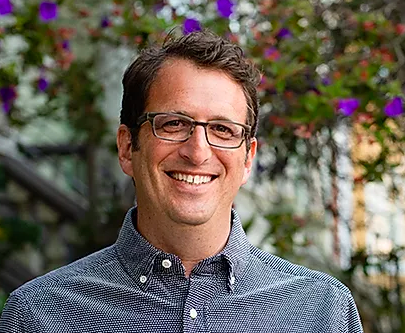Sup. Dean Preston is proposing a City Charter amendment that could profoundly impact local politics, and so far, there’s been very little news media notice.
Preston sent out a press release yesterday outlining a plan to move the election of the mayor and other top city officials from an odd-numbered year to even-numbered years, which in his current plan would bring the mayor’s race into the cycle of presidential elections.

Those elections typically have the highest turnout citywide, sometimes much higher turnout than the off-year elections.
Under the current charter, the mayor, sheriff, district attorney, city attorney, and treasurer are all elected in what political observers call “off-year” elections, when there’s nothing at the top of the state or national ballot.
There was a time when some local activists thought this was a good approach: In years when the president or governor is at the top of the ballot, a race for local office can get lost, and the voters might not be paying as much attention.
Holding the race for mayor in a year when that is the main issue on the ballot, in theory, allows the news media and the public to focus on the local issues.
Mixing the mayor’s race with the presidential or governor’s race back in the day could allow the local Democratic Party machine (which was a real thing for many years) control the messaging on a critical local election.
But a lot has changed in the past ten years. The likes of Willie Brown and Phil and John Burton no longer control the local Democratic Party; right now, progressives have a majority on the County Central Committee. The local news media, such as it is, bears little resemblance to the Chronicle-Examiner dominance of the 1980s.
And since Democrats control the state of California today, there’s less excitement about a November race for governor; the Democrat who wins the June primary is going to win the office.
Let’s look at some numbers. In 2019, the voter turnout in an election that kept London Breed in the Mayor’s Office was 41.6 percent. A year later, in fall 2020, turnout was 52 percent.
When Preston ran against appointed incumbent Vallie Brown in a special election for supervisor in D5 in 2019, turnout was 23,000. A year later, in the 2020 election, turnout was 41,000.
There’s an economic argument here: It costs the city about $5 million to run an election, so consolidating top local races with local races for supervisor and state and national races makes sense.
Preston:
It’s good for our local democracy when we choose our public officials in elections where the majority of registered voters cast their ballots. There is nothing democratic about elections that discourage voter participation, either coincidentally or by design.
More from the press release:
The proposed change would particularly help maximize participation by low-income voters, who face practical barriers to participation but turn out in significantly greater numbers for even-year elections when President, Governor, Congress, and Supervisor races are already on the ballot. In November 2020, 86% of registered voters cast their votes, including over 70% of registered voters making under $50,000 . Less than 40% of voters in the same economic range cast their ballots in November 2019, and only 41% of all registered voters participated citywide.
Various organizations like the Greenlining Institute, which has long focused on social, political, and economic issues affecting communities of color, published research and a case study that showed that “holding local elections in odd years greatly reduces voter turnout, and almost certainly skews the makeup of the electorate.” Specifically, its analysis found that “low-turnout elections tend to be older, whiter and more affluent.
There’s also the issue, and in local politics it cuts both ways, of having the mayor on the same ballot as some of the supes, who are elected in even-numbered years. Mayors in San Francisco don’t tend to have political coat-tails, and Breed is a case in point: Almost every candidate for supervisor that she has supported or appointed has lost. (That was also the case, once the city returned to district elections, for Willie Brown and Gavin Newsom.)
Would that be different if the mayor were on the same ballot, running as a slate with their endorsed candidates? Nobody knows.
So this will be up for discussion at the board and in the public realm, and will only get on the ballot if five of Preston’s colleagues on a very progressive board think it’s a good idea.
In some ways, this and the other charter amendments the supes are pushing could be, and maybe ought to be, the opening salvo in a move to completely overhaul the outdated, regressive City Charter that invests what some say is way too much power in the mayor.
That would be a bigger project. But it’s hard to argue that it isn’t needed.



